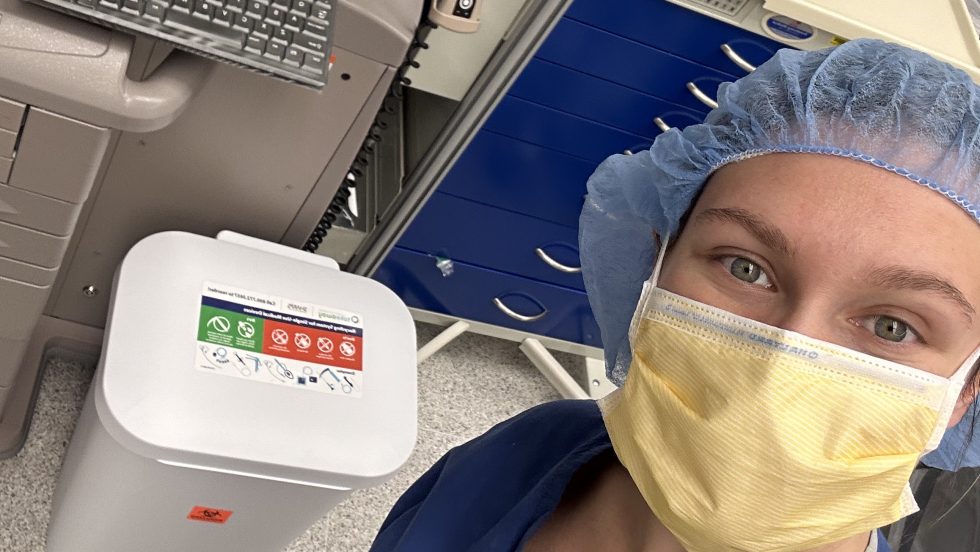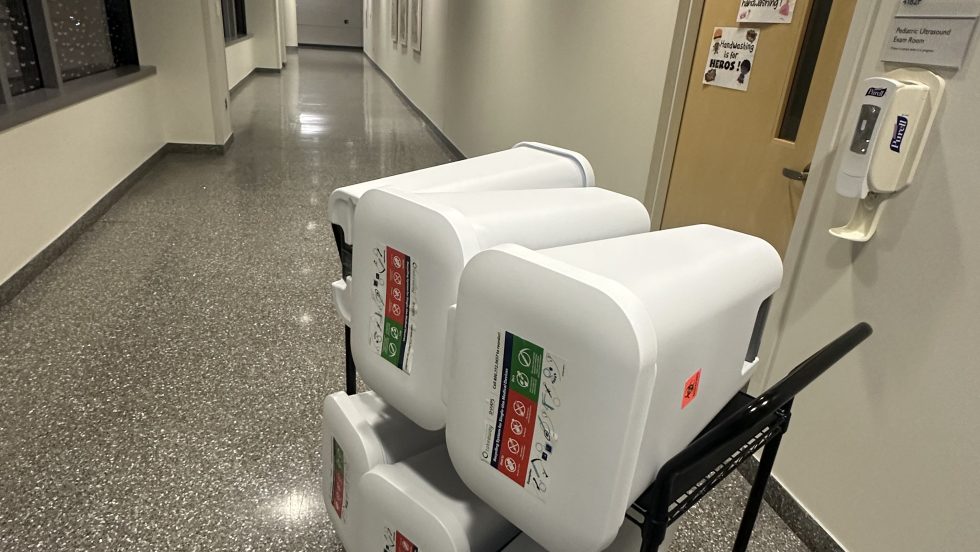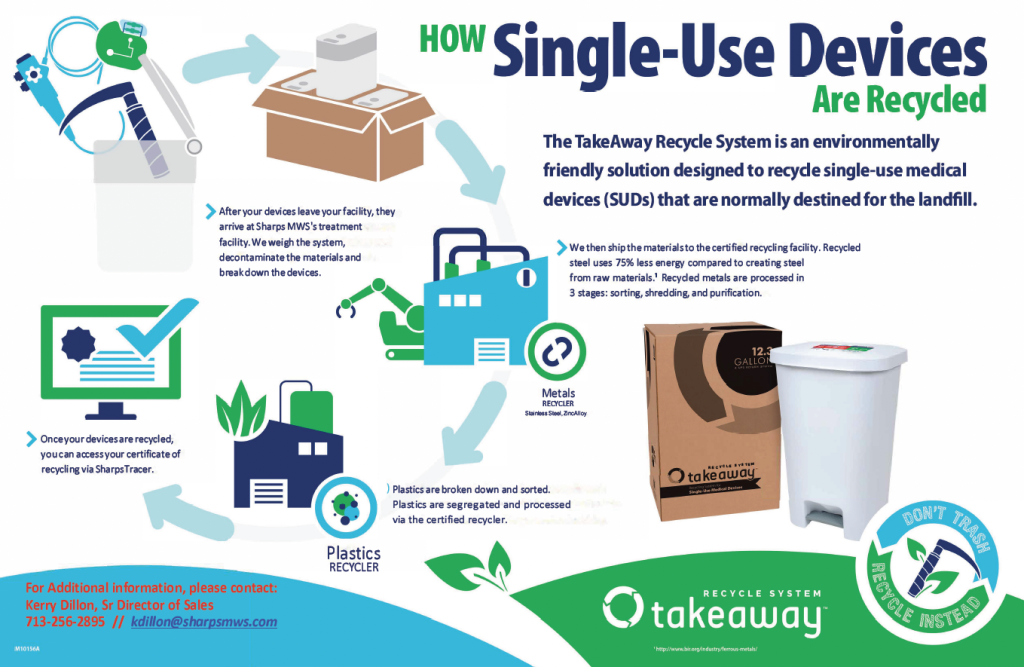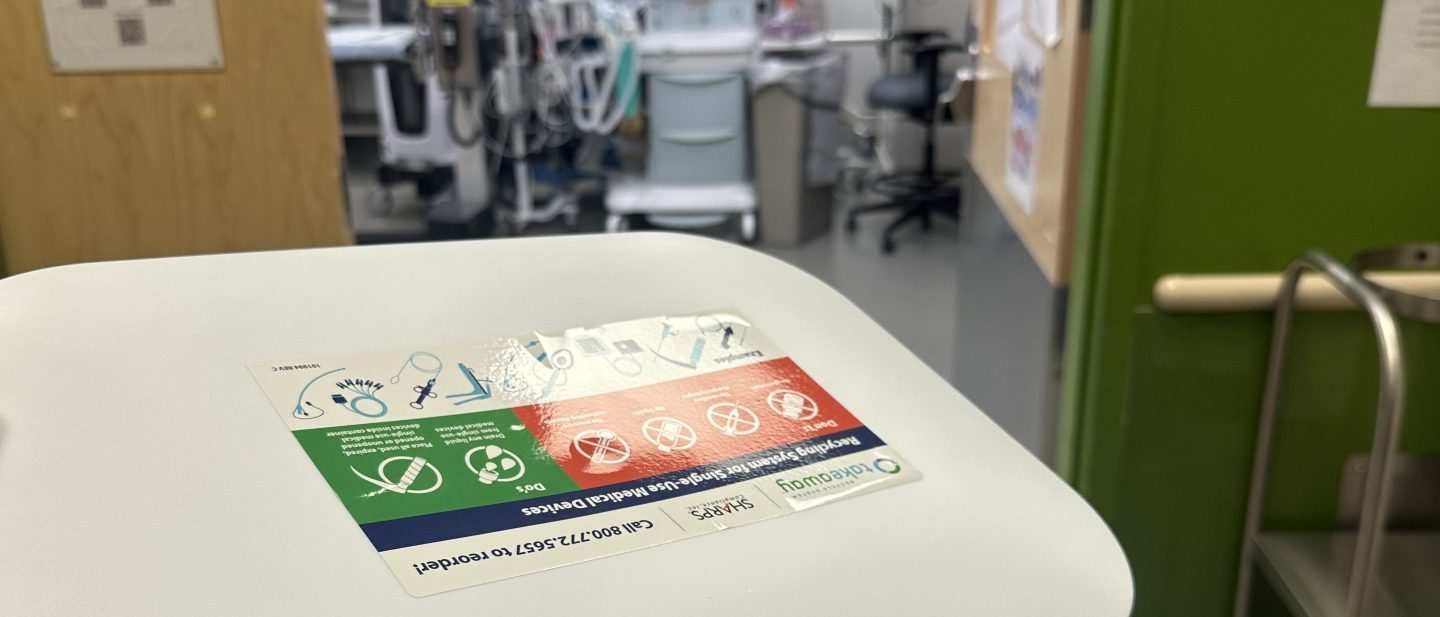
Most procedures in the operating room include administering general anesthesia, which requires patient intubation with single-use laryngoscopes. After about five minutes of use, the laryngoscope is discarded and sent to incineration. Funded by the Campus as a Living Lab program, medical student and Hopkins graduate Melanie Alfonzo Horowitz aims to divert this waste to a recycling program at Johns Hopkins Hospital (JHH) operating rooms.
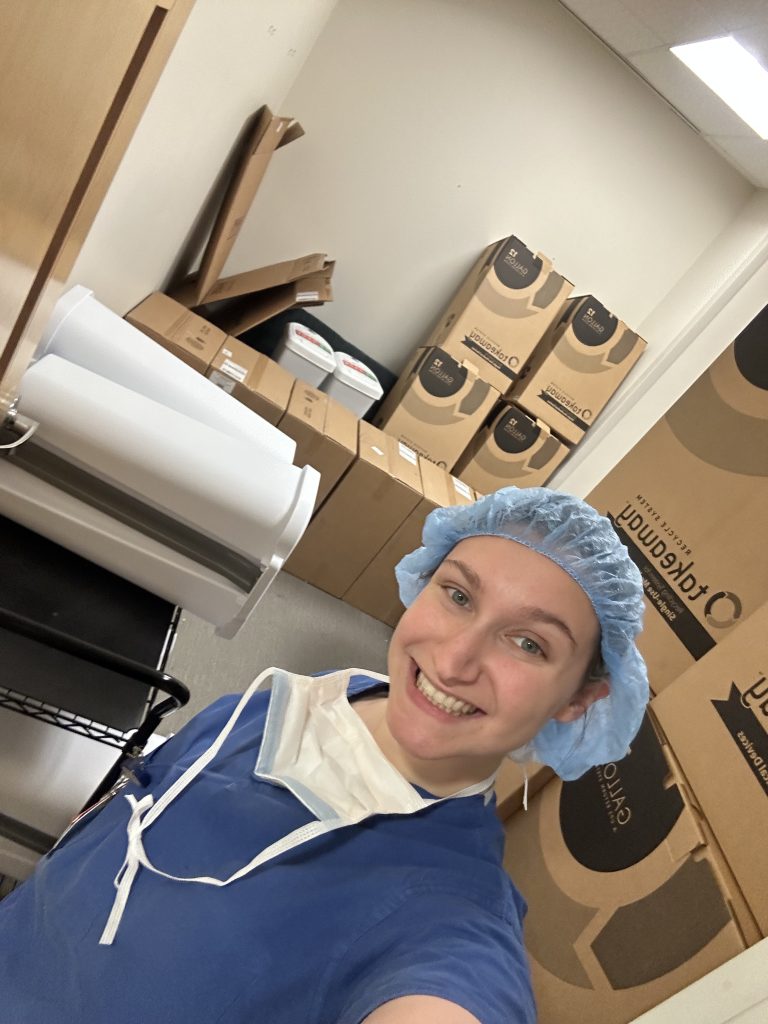
Studies claim that if the US healthcare system were its own country, it would be the 13th largest global greenhouse-gas emitter. Alfonzo Horowitz has always been passionate about sustainability and faces cognitive dissonance about going into such a wasteful field. The act of treating patients generates waste and pollution, contributing to worsening environmental issues and injustice, causing more harm and producing more patients. To work on “stopping the perpetual cycle,” Alfonzo Horowitz has partnered with Dr. Nick Dalesio from pediatric anesthesiology, Moriah Barr in JHH facilities, and Sharps Medical Waste Services to set up a system of recycling laryngoscopes that does not affect surgery efficiency. She has used the grant to eliminate any cost obstacle that would pose a barrier towards hospital administration approval.
“We currently operate in all pediatric operating rooms and thirty other adult operating rooms distributed across the third and fifth floors of Zayed and Weinberg buildings. Each month we collect up to 20kg in airway equipment that has been diverted from incineration to recycling,” Alfonzo Horowitz reports.
When asked about the unique barriers associated with introducing sustainability projects in a medical environment, she described the “why change it if it’s not broken” mentality and the lack of awareness of the industry’s negative impact, adding that sustainability was a minor part of the medical school curriculum. In exploring the conversion of disposable medical equipment to reusable equipment, “there’s a question of safety, efficiency, and financial cost,” and “more research needs to be funded on the infection risk of reusable equipment, which is an underfunded area since it’s not directly related to patient care.” Overcoming these barriers will take collaboration with many different stakeholders on both the medical and administrative sides.
While waste is currently being diverted, Alfonzo Horowitz’s long-term goal is to transition towards reusable laryngoscopes and other medical equipment to eliminate that source of waste entirely.
Along with this bringing change, hopefully seeing how much we’ve collected can show others how much waste is being generated and then motivate waste audits. This is especially important in operating rooms, as some data show they contribute up to 70% of hospital waste.
She hopes the data collected from this project will motivate the Hopkins healthcare system to be more willing to compromise and aims to spark conversations to implement long-lasting change throughout the hospital.
